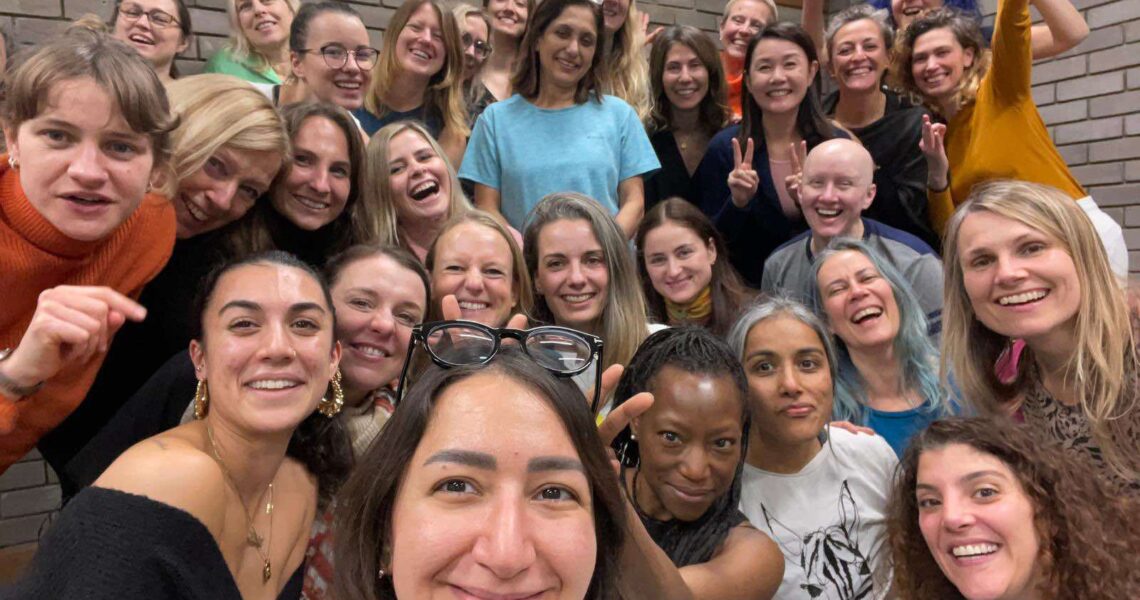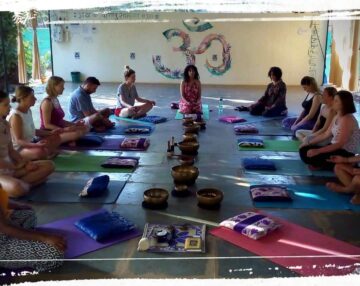This is a very significant month for me. After 2 and a half years of training to become a Yoga Therapist, I have now completed all aspects of my Diploma and started working as a Trainee Yoga Therapist. I will graduate to a full Yoga Therapist once everything has been marked (& passed!). This has been such a big focus of time and effort through my journey since making the “big leap” in 2022 and I feel like I am not the same person I was at the start of the course. What I have learned and embodied has changed the way I feel about myself, the way I show up in my life and how I handle challenges (which are still numerous and part of being human!).
During this time, I have tried on many hats when looking to describe myself. I have operated as a “multi-hyphenated” professional, describing myself through the range of roles I played – yoga teacher, qigong instructor, workshop facilitator, chartered manager, retreat leader, wellness educator. I have played all of these roles and yet none of them seem to quite capture everything I offer. As I enter this relatively new and emerging profession of Yoga Therapy, I have the opportunity to try on the hat of “Yoga Therapist,” which if nothing else, is likely unusual enough to peak one’s curiosity to perhaps ask “What is a yoga therapist?”
And for everyone who is following my journey through these blogs, this is a question that I will start to answer today, but which we are going to discover together over the coming months, years and beyond! Fundamentally, a Yoga Therapist is a person who blends the philosophy and practices of yoga with modern disciplines of physiology, psychology and neuroscience to help people live happier, healthier and more fulfilling lives. They may support people experiencing challenges with mental or physical health, as well as people wanting to manage the everyday stress, pressure and challenge of a human life.
Yoga Therapy is the application of yoga to support improved mental and physical health and overall wellbeing. “Yoga” includes physical movements and postures, breathing practices and techniques, mindfulness and meditation and the rich array of yoga philosophy that underpins it all. Yoga Therapy is most commonly delivered as weekly 1-2-1 sessions where clients identify specific goals that they want to work towards, and the Yoga Therapist creates individualised treatment plans and tailored practices to help them achieve these. Yoga Therapy is a co-creation between the therapist and client, with both playing a vital role in the journey towards realising the goals identified by the client.
Yoga Therapy can also be delivered as a group programme, where the focus is on a particular health condition or challenge and people come together with others who are having similar experiences. My training includes learning how to teach Yoga Therapy for the Mind: An 8-Week Course, an evidence-based programme designed specifically for those looking to reduce stress, anxiety and/or depression. Learning to teach this course and specialising in yoga for mental health was a big part of my motivation for choosing the Minded Institute Diploma and I’m excited to be able to offer this programme over the coming months and years.
In response to the original question, “What is a Yoga Therapist?” I believe that a Yoga Therapist also encompasses many other things. A Yoga Therapist is a bilingual professional speaking both the language of western medicine and psychology as well as the language of holistic, mind-body wisdom traditions. Part scientist, part philosopher, part teacher and part guide. We walk alongside people on their own personal journey of healing and discovering their inherent wholeness and weave in knowledge, wisdom, practices and techniques that can give inspiration, guidance and practical support at every stage.
So having struggled to find the right job title to describe myself and my work for over 2 years, I now feel both comfortable and (dare I say), excited to step into this role of Yoga Therapist. To get over my initial reluctance to be something that people will not recognise and instead to see that as a beautiful opportunity to be part of shaping this emerging and empowering profession. This doesn’t mean that I will stop sharing the benefits of yoga in other ways. I will still be offering classes, still be leading retreats and still be teaching workshops and courses. But now I am happy to tell people that my name is Sam and I’m a Yoga Therapist. And to even feel excited if they look a little perplexed and ask me, “What is a Yoga Therapist?”



